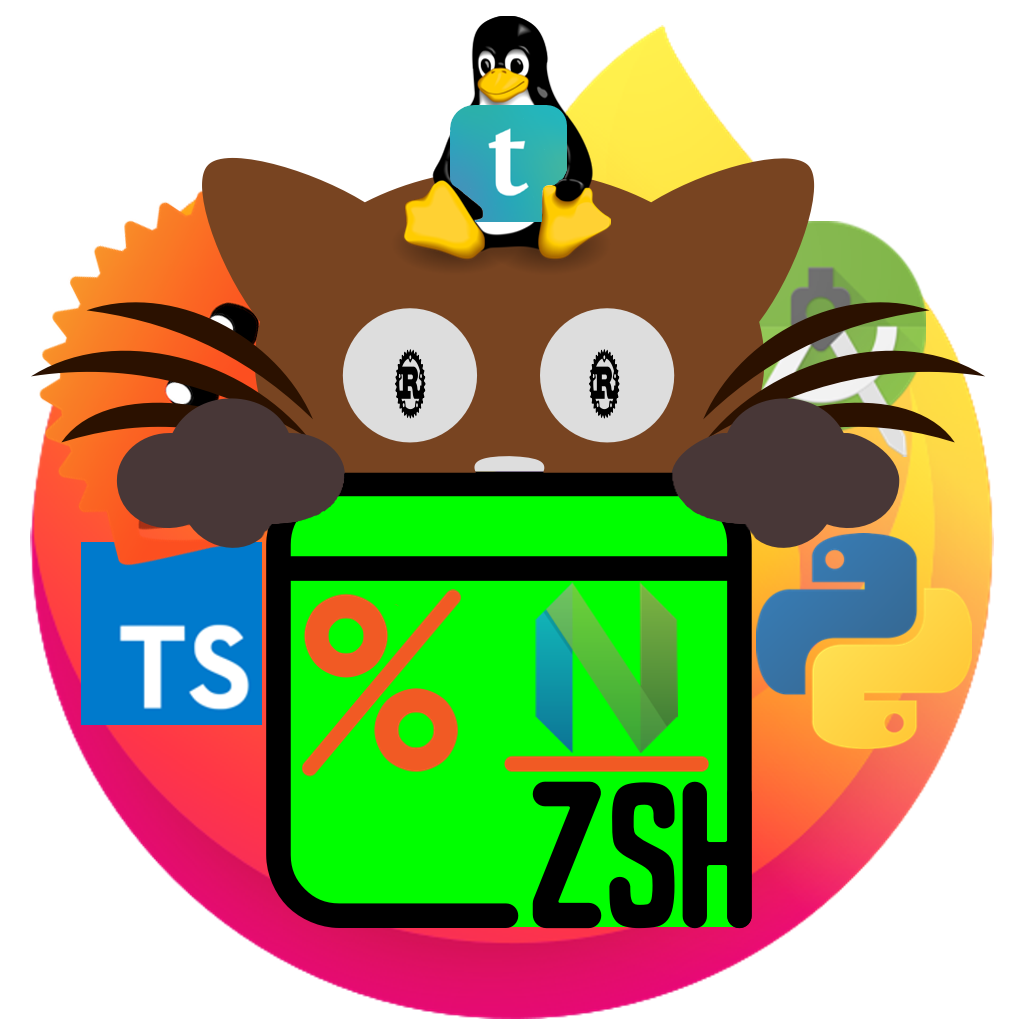I would recommend pdm and micromamba.
“Print needs ()”
Oh fuck off. years of code that cannot be easily redone in ANY editor. Whoever OCDd that into python 3 needs to have their asshole kicked up into their mouth.
why would it not have brackets? i detest syntax that is only applicable to a handful of situations and has to be specifically memorized separately from how every other part of the language works.
Not after 10 years of it not having brackets. And providing no editing ability to change it as a macro. That’s just cruel and inhumane and psychopathic.
Imo is more intuitive the need of () in print,like is a function like any other, why would not use ()?
If you developed it to not have brackets for the first one or two decades. Especially if there’s no possible way to easily edit it. You’re a psychopath to not consider this.
That’s what major versions are for - breaking changes. Regardless, you should probably be able to fix this with some regex hackery. Something along the lines of
new_file_content = re.sub(r'(?<=\bprint)(\s+)(?!\()', '(', old_file_content) new_file_content = re.sub(r'(print\(.*?)(\n|$)', r'\1)', new_file_content)should do the trick.
Meanwhile Nim:
echo "I am still worthy"let a = r"I hate the ugly '\' at the end of " & "multiline statements"for x in 0..9: if x == 6: echo x echo x # this is error in Nim, but not in python. Insane!assert false + 1 # this is an error (python devs in shambles) assert true - 1 # see aboveThanks for coming to my Ted-talk.
More here: Nim for Python Programmers
Oh god, I feel this. Why can’t there be a sane language‽
It would have to be written by sane people.
But the Lord came down to see the
cityOS and thetowerapp the people were building. The Lord said, “If as one peoplespeakingprogramming the same language they have begun to do this, then nothing they plan to do will be impossible for them. Come, let us go down and confuse their language so they will not understand each other.”So the Lord scattered them from there over all the earth, and they stopped building the
cityOS. That is why it was called Babel—because there the Lord confused the language of the whole world. From there the Lord scattered them over the face of the whole earth.This message brought to you by TempleOS
Amen. Now, where’s that Wine?
Computer programming, regardless of language, is hard. The computer does exactly what you tell it to.
Yes. That being said, it matters which language you choose. COBOL is always a bad choice, unless writing in COBOL is the whole point. There isn’t really a universal best choice, either. Python is often a good one, but if you’re doing something big it will become this meme.
C exists
bashBecause no one likes Java.
Hahahahahhahaha
While Java js definitely one of the best, it still has some quirks that you need to know about.
Java js
That’s an unfortunate typo
Java²script
I mean javascript is java right? It’s in the name
There are 2 types of programming languages
- The type everyone keeps complaining about
- The type no one uses
People complain about perl, but no one uses perl.

This is so true & unfortunately everyone keeps telling beginners to start at Python
But
andinstead of&&means beginner friendlyEmbrace your forefather ALGOL: 🤚
and,&&👉∧
I don’t know who needs to hear this, but Python, like most languages, can be as complex as you make it.
Preach!
deleted by creator
Felt
no i will NOT use more than one line in my scripts
Is it the language’s fault that you want to solve complex problems?
Is it? No. Is it also my fault I am stupid? No.

You jest but it can happen when what the docs says doesn’t reflect the implementation. And also, that’s what we call bugs.
YES!
oh my fuck. circular imports.
I set out to create a Discord Bot in Python, then gave up trying to use an easy “proper” server-side language and just did it in TypeScript
I think venv is the best because it’s built in. But I’m also not a Python dev.
The thing that annoys me the most is how it cares about whitespace/carriage returns. I remember back in college when I was taking a CS class, learning Python and writing the Code on a Windows PC, emailing it to myself, and then attempting to run the code on Linux. Before I learned about the carriage return conversions, I remember having to rewrite about 75 lines of code before I got it to run. 🤬
The syntax wouldn’t work without consistent spacing
Looks like user error
Of course… All the issues we face are user errors.
I call it a layer 8 issue
While being controversial, rye is very good for small personal projects. It does pretty much everything from python version management to project scaffolding.
That link is broken…
They didn’t include https so the link doesn’t know what protocol it’s meant to open with
they are also working on a follow-up, uv. not really a fan of writing tooling in another language but it works really well.
Coming from c# then typescript and nextjs, rye feels very intuitive and like a nice bridge / gateway drug into python.
I know this may be an unpopular opinion on lemmy, which leans so heavily towards Linux and FOSS, and I’m a Linux user myself but….
I actually really like C# and .NET (the modern cross-platform version anyway).
.net from core 2 was awesome. From 5 onwards it’s been beyond amazing!
Some people in the comments didn’t take it as tongue-in-cheek as I did. 😝
I thought this was really funny. That’s a good collection of toe stubs.
There is a lot of stuff to learn to be good at python but I still love it.
Best scientific packages in the open source by far, a library for everything, everybody knows it. Works on all kinds of systems. Available by default in many OSs.
You might not like it, but you can’t leave.
Can’t speak for the science libraries as I’ve never used em, and I’ll gladly just blindly accept that as truth, but for everything else it’s always a pain in the ass. For being designed to “run on anything” it sure is funny that 90% of the time I download a python app it doesn’t fucking work and requires me to look up and manually setup a specific environment for it. Doesn’t help that the error messages are usually completely random and unrelated to this…
I always dread when some fucking madman makes the installer for their app in python, knowing it’ll probably fail… God forbid it’s a script that’s supposed to modify something else. Always a good time for reflection upon the choices that led me to this point.
Even my old scripts I kept around for sentimental value. Half of those don’t work either, and I can’t be bothered to figure out what version I made em for.
I tried my best to scrub python from my pc out of principle, but as you say, it’s soo common my distro uses it as a dependency, fucking bullshit!
Julia?
Is great until you need a job. It solves the 2 language problem right up until you’re working with others.
The summary that I liked from the last post was “python is the second best language for everything”. There’s always something specialized and better for every given job. But, if you want one tool that’ll do a solid job everywhere, python is your go to.
I literally used to say this last decade, but as I grew experienced with more languages/paradigms/systems, it became 3rd best, then 4th, until I realized it actually not really great at anything other than there is an large ecosystem around it (wildly varying in quality). To some that might be enough, & going outside what you know isn’t typically the most wise thing to do, but it’s not particularly simple, or readble, or performance, or composable, or offering great patterns. Anything that used Python in Nixpkgs tend to be the most unreliable software for actually building & using.
I don’t think that’s quite right. It’s more like if you have to choose a language before you know what you’re doing, Python is the best choice. For anything large enough it’s multiple places down the list, but you really don’t want to have to learn Rust and possibly reinvent wheels for your quick boilerplate hack.
and c is the first best for everything!
😡
Is it better than R? I am not so much into python (too embedded in R).
I guess I don’t know. Whenever something tempts me to R, I quickly find that Python’s got a good-enough solution.
R is better if you want some very specific, niche statistical packages.
Python is better if you want to combine statistics with any other compute process.
Same for me with python, I always fall back to R after 10 minutes of trying to do it in python. :)
Are any of those things that you actually deal with as a beginner, though? Sure, those add complexities, but by the time you start to get into them, you are probably no longer a beginner.
Of course… But the idea is that it is misleading… And there’s more traps the beginners falls into. I have a feeling if beginners begin with C++, or other language that is strongly typed and requires memory management and then do some other language that is more abstract like python; they will become better programmers compared to them doing it in reverse.
For someone starting out, I would say that a major advantage of Python over any compiled language is that you can just create a file and start writing/running code. With C++ (which I’m also a heavy user of) you need to get over the hurdle of setting up a build system, which is simple enough when you know it, but can quickly be a high bar for an absolute beginner. That’s before you start looking at things like including/linking other libraries, which in Python is done with a simple
import, but where you have to set up your build system properly to get things working in C++.Honestly, I’m still kind of confused that the beginner course at my old university still insists on giving out a pre-written makefile and vscode config files for everyone instead of spending the first week just showing people how to actually write and compile hello world using
cmake. I remember my major hurdle when leaving that course was that I knew how to write basic C++, I just had no idea how to compile and link it when I could no longer use the makefile that we were explicitly told to never touch…100 times this.
I think I have a solid grasp of C++ and its manual memory management, but give me a build error and I’ll have zero clue how to fix it.
Yeah but fuck all that python is good enough for most beginners. Variables, scope, loops, functions, operators… Once you get some of the principles down switching to C++ or similar isn’t nearly as bad.
Being a person that tried to learn C/C# from scratch in my early days python was a good gateway language.
I don’t know, man, far too many people seem to think that “easy to learn” means they’ll know all they need to know in relatively short time.
Like, you talk to our data scientists and they’ll tell you doing anything in Python, no problem. But you talk to our seasoned software engineers and you see the war flashbacks in their eyes, because it racks up in complexity so fucking quickly, it’s insane.




















